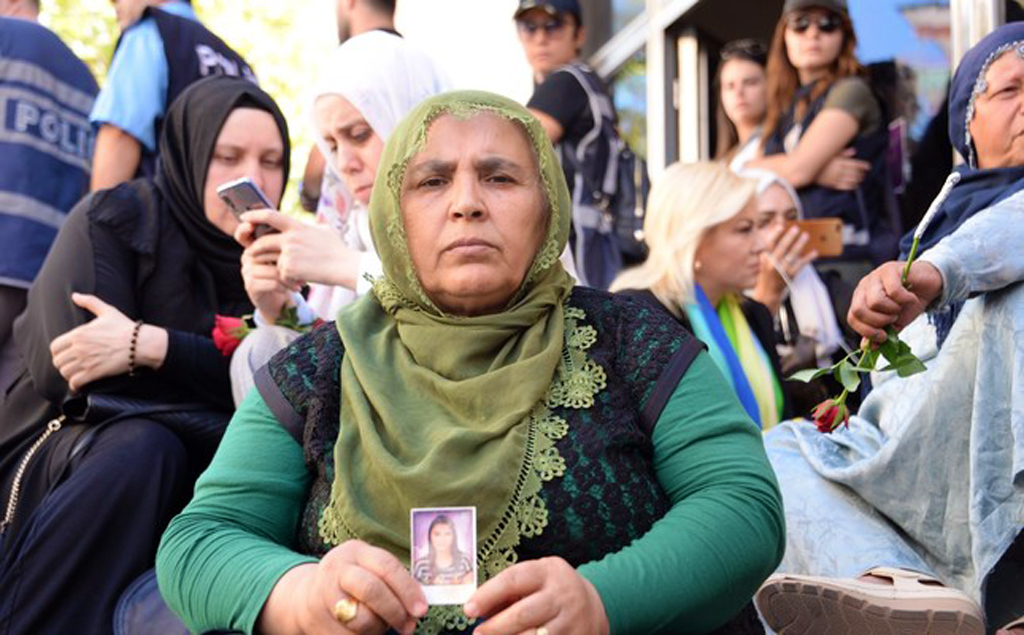5 Questions: Operation Peace Spring
What are the main objectives of the operation? What is the scope of Operation Peace Spring? What is the background of the operation? How will the operational process work? What are the reactions from the international community? How can they be interpreted?
More


Factors influencing US reactions to the Turkish anti-terror operation in Syria
Turkey has been repeatedly emphasizing its determination to clear its border with Syria from terrorist elements. For this reason, Turkish officials have been trying to persuade their American counterparts to stop supporting the People's Protection Units (YPG)/Syrian Democratic Forces (SDF) and not to oppose its long-planned military operation.
More
With Parliament back from summer recess, Turkey's political scene is heating up. The Good Party (İP), part of the opposition-led Nation Alliance, announced that it will leave the alliance if the Peoples' Democratic Party (HDP) joins it.
President Recep Tayyip Erdoğan, in his address to the Turkish Grand National Assembly (TGNA), in the opening ceremony of the new legislative year, clearly outlined Turkey's position concerning the east of the Euphrates River in northern Syria.
Insight Turkey’s Winter 2020 issue (Vol. 22, No. 1) will focus on the Israel-Palestine conflict by reopening the debate about the conflicts’ drivers and actors, analyzing its dynamics, and examining its possible trajectories and future. We welcome scholarly papers examining and discussing political, economic, or social aspects of this issue.
The U.N. has unfortunately turned out to be a platform where the significance of multilateralism and global cooperation is increasingly ignored or even damaged
The implications of the Aramco attacks
Saudi Arabia's Aramco, one of the biggest companies in the world, was hit by armed unmanned aerial vehicles (UAVs), also known as drones. A total of 18 drones and seven missiles were launched against the Saudi infrastructure. The attack was the worst on Middle Eastern oil facilities since Saddam Hussein set fire to Kuwait's oil wells in 1990. The attack knocked out 5% of the world's oil supply, and oil prices increased almost 20% as a result. Even though the attacks were claimed by Houthi rebels, Saudi Arabian officials blamed Iran, at least for providing weapons to the Houthis. Some officials even claimed that Iran was directly involved in the attacks.
More


Still too early to be optimistic about stability in Syria
An important meeting was held between the leaders of Turkey, Iran and Russia in Ankara on Sept. 16. The three actors' positions were close in the last trilateral meeting. The leaders of the three countries agreed on the structure of the constitutional commission and reiterated their commitment to the territorial integrity of Syria. They also supported the idea of reducing the tensions in Idlib province.
More
Despite its ups and downs, the Astana Process is the only serious option currently playing a decisive role to create a permanent solution in the Syrian crisis
President Donald Trump's administration in Washington explicitly supported this ambitious alliance, which portrayed itself as the new powerhouse to reshape the Middle East and North Africa (MENA) region. Saudi Arabia's Crown Prince Mohammed bin Salman (MBS) and the Crown Prince of the Emirate of Abu Dhabi, Muhammed bin Zayed (MBZ), were the leading figures and sponsors of this project.
Kurdish mothers, who have been staging a sit-in protest that is above all political ideologies and stances, demand their sons back from the PKK no matter what
Last week, two developments in the U.S.-China relations demonstrated the intricacy of their ties and signaled the future trajectory of the Great Power rivalry.
Hacire Akar, a mother from Diyarbakır, is the symbol of a new protest movement against the PKK terrorist organization and the Peoples' Democratic Party (HDP) in Turkey. Her 22-year-old son Mehmet was taken to the HDP building in Diyarbakır by some of his "friends." To her dismay, she learned that her son joined the ranks of the PKK.
This chaotic period, which intensified or started with the Arab Spring insurgencies, has been deepening every other day..
For the last several weeks the Bashar Assad regime forces have relaunched and gradually intensified airstrikes in northwestern Syria's Idlib..
The U.S. and European actors' indifference in Syria and pressure on Turkey weakens Ankara's position vis-a-vis Moscow in the political deal for Syria
Considering the military capability of Russia and the U.S. and the game-changing capacity of Turkey, it will take time to reach a real solution in the Syrian crisis
Indian Prime Minister Narendra Modi revoked Article 370 of the Indian constitution which gives autonomy to Jammu and Kashmir. India's decision flared up new tensions in the region and led to protests in Jammu and Kashmir as well as in neighboring Pakistan.
After weeks of difficult diplomatic consultations and negotiations between diplomats and military officials from both sides, Ankara and Washington managed to reach a breakthrough on the situation in northeastern Syria. Turkish and American officials agreed on three item protocols that satisfy the fundamental concerns of both parties. The agreement includes the following items: "Rapid implementation of initial measures to address Turkey's security concerns," "Starting up a joint operations center in Turkey as soon as possible" and the "Creation of a safe zone and 'peace corridor' for the return of displaced Syrians to their country."
When the discussion started between Turkey and the U.S. regarding a 'safe zone', many considered it a possible turning point in relations. The mutual mistrust in Syria and an escalating divergence of opinions between the two countries throughout the Syrian civil war had derailed relations more than any other issue in the last decade.

















